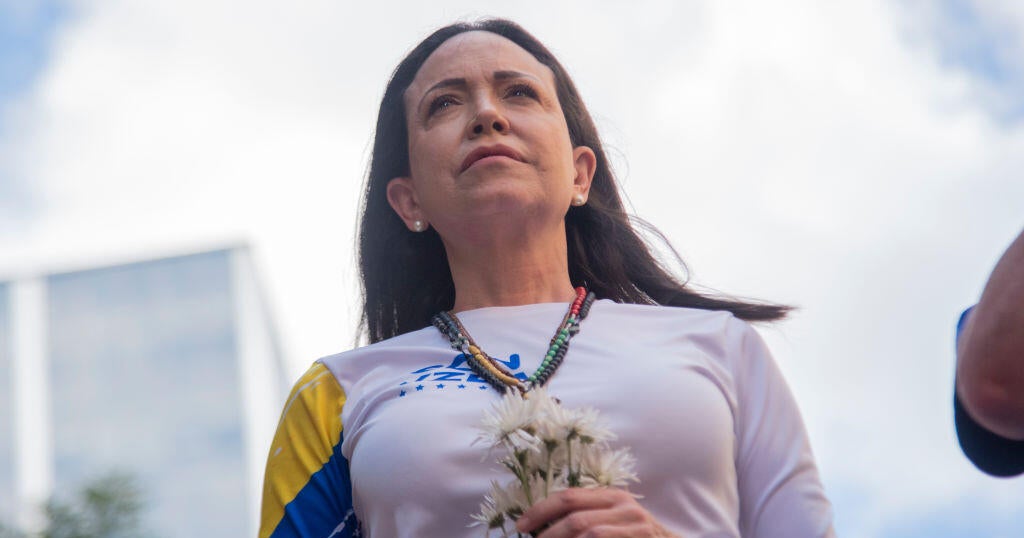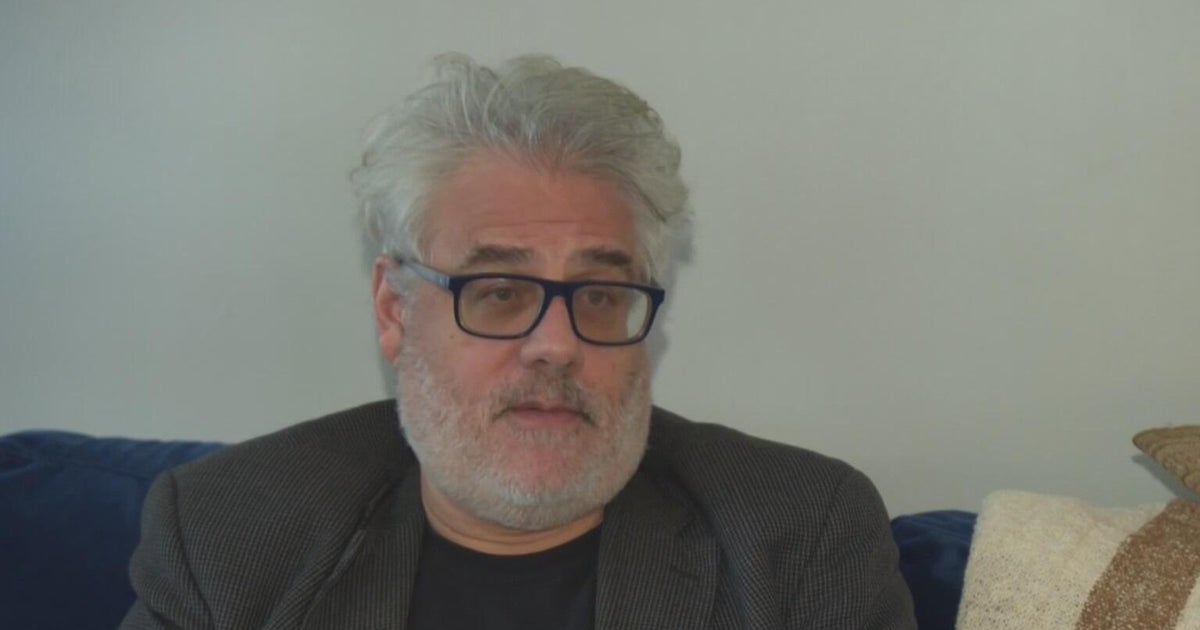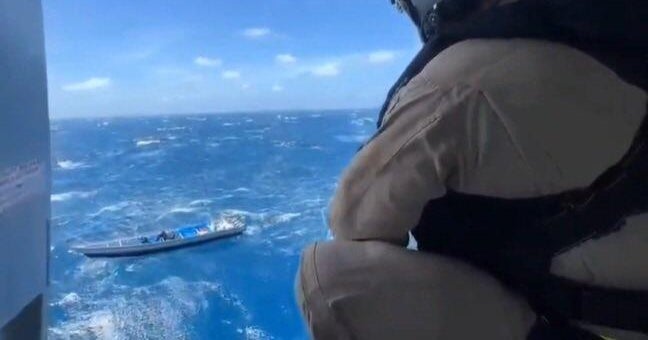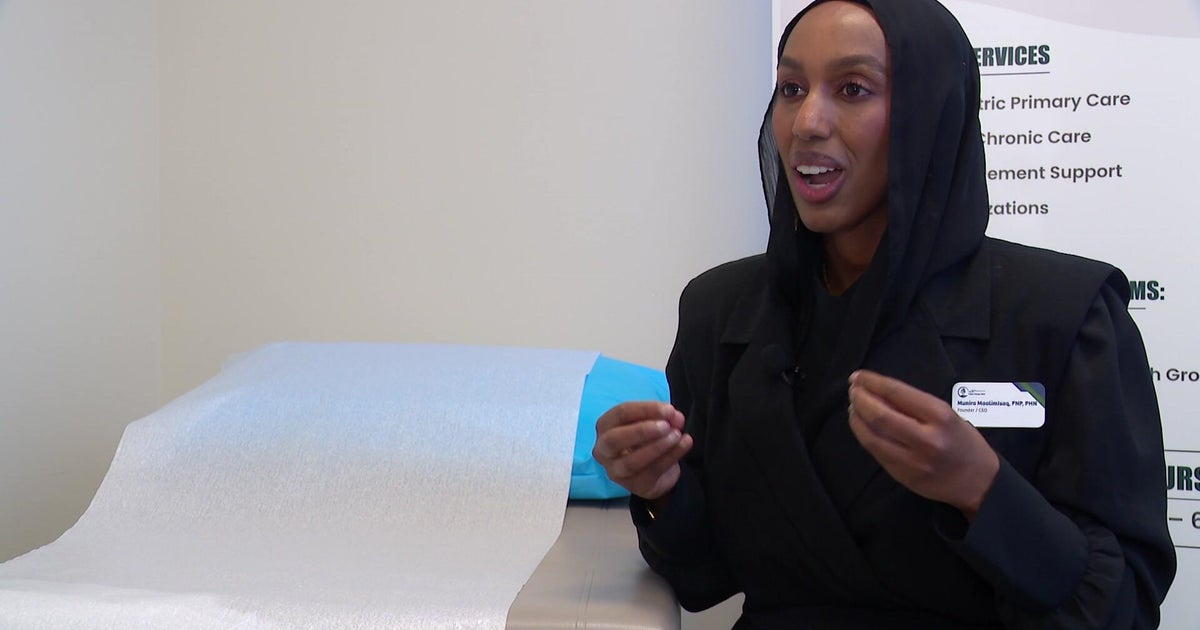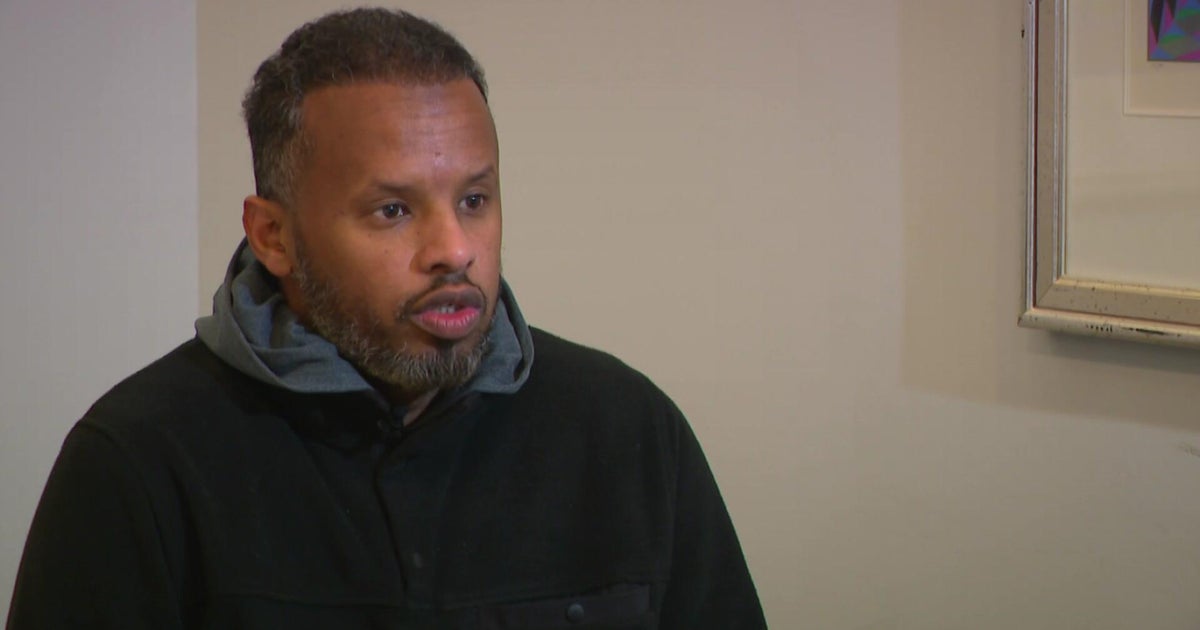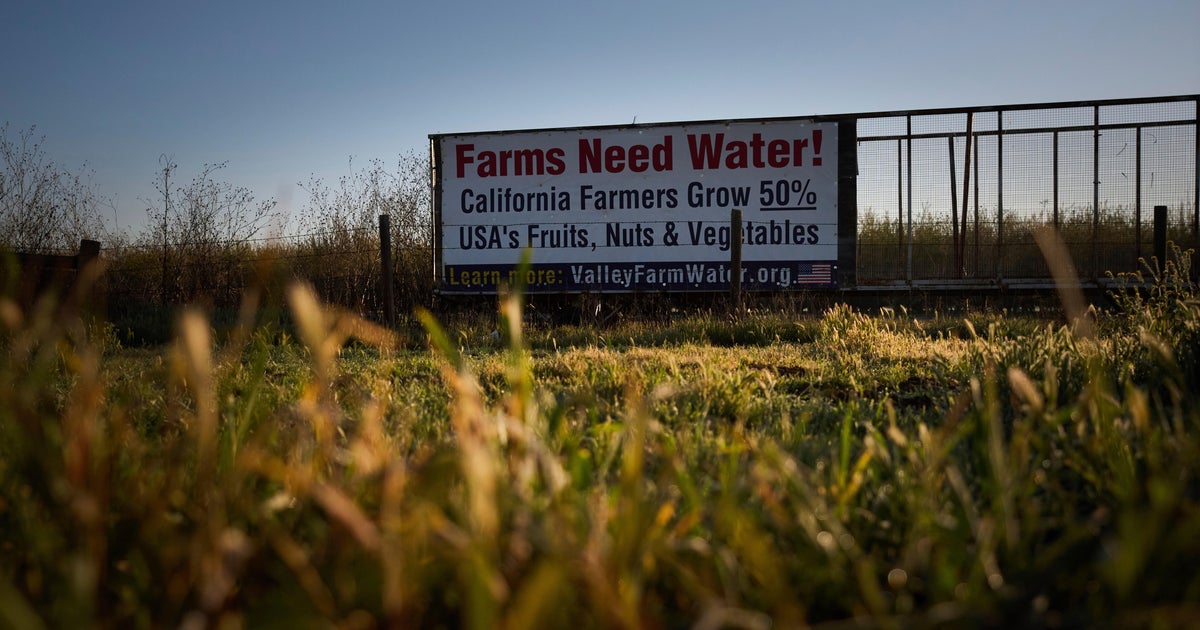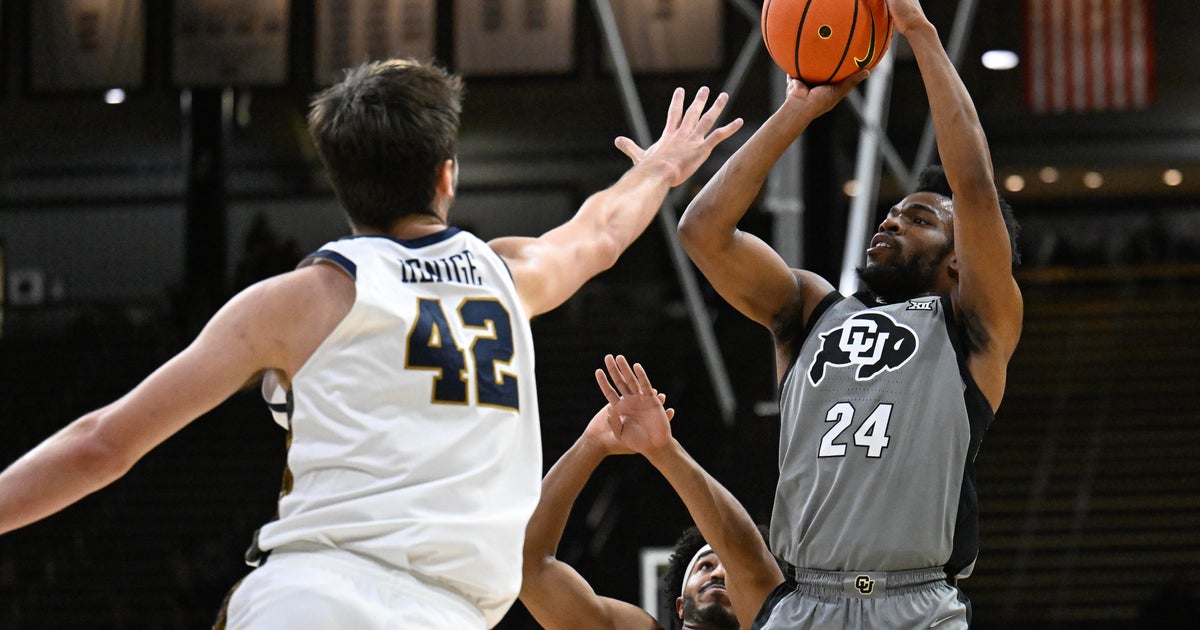Venezuelan opposition leader sets date for showdown with Maduro's forces
Caracas, Venezuela -- Opposition leader Juan Guaidó said Tuesday that he will try to run caravans of badly needed food and medicine into Venezuela but won't start for nearly two weeks, a timeline that threatens to deflate momentum toward unseating entrenched President Nicolas Maduro. Surrounded by thousands of cheering supporters, Guaidó set Feb. 23 as the date for bringing in the badly needed U.S. assistance that has been warehoused on the Colombian border since last week, but he provided few details.
The 11-day wait was sure to be a disappointment for Venezuelans desperate for the supplies. More than 2 million people have fled the country's soaring hyperinflation and severe food and medical shortages over the last two years. The minimum wage, which most Venezuelans earn, amounts to less than $6 a month, and it is common to see people scouring garbage for food in the streets of Caracas.
"Right now, I'm going to give this order to the armed forces: Allow in the humanitarian aid. That's an order," Guaidó told the mass of people gathered in Caracas.
Will the military abandon Maduro?
Despite the authoritative-sounding assertion, there has been little evidence that the allegiance of the security forces -- the country's key powerbrokers -- has swung behind Guaidó, a virtually unknown lawmaker until last month, when he took the helm of the National Assembly.
Guaidó provided few details on how the aid would be brought in from the Colombian border city of Cucuta, except to call for mobilizing caravans of Venezuelans -- a daring and potentially dangerous maneuver that could lead to more violent confrontation with the security forces.
At least 40 people have already been killed in clashes since the 35-year-old lawmaker declared himself interim president Jan. 23.
Jose Manuel Olivares, Guaidó's representative in helping lead the aid mission from Colombia, acknowledged the risk, saying he and other lawmakers plan to be at the front of the Feb. 23 push to get the aid in, even if it means risking their lives.
"We have never told people to do something we are not willing to do," he said. "We're going to be there with people taking the risk."
Representatives of Guaidó's shadow administration in Washington D.C. told CBS News this week that believe the humanitarian aid massed on the Venezuelan border will be a real test of the military's loyalty to Maduro.
"This will be a key moment for the military to see which side they will be on," Carlos Vecchio, Guaidó's ambassador to the U.S., told CBS News. "If they will be with the Maduro regime, which is not going anywhere … or if they will stay with the Venezuelans who need that food and medicine."
Diego Moya-Ocampos, a Venezuela analyst with the London-based consulting firm IHS Global Insight, said Guaidó has gained broad support beyond the middle classes and deep into Venezuela's slums, once a stronghold of the ruling socialist party.
But that hasn't translated into support from the military and security forces, who Moya-Ocampos said continue to distrust the opposition and fear being held accountable for criminal activity and human rights violations if the regime changes, despite Guaidó's offer of amnesty.
A Venezuelan National Guardsman risked his own safety last week to tell CBS News correspondent Elizabeth Palmer that, along with many of the rank and file in Maduro's military, he was fed up with the Maduro regime and would happily back a change in loyalty to Guaidó.
But the guardsman spoke to CBS News only on the condition that his identity be completely concealed, and said it would take one of the Guards' senior commanders defecting to the opposition, "to lead" the rest of the force, to convince him it was a safe move. So far, only one high-level military defection has been made public, so the rank and file -- quietly frustrated or not -- have continued to toe the regime line.
"The military has had more than one opportunity to withdraw support for Maduro," Moya-Ocampos said. "It has consistently continued to back him."
On the international stage, Guaidó has won backing from nearly 60 countries, including the United States, which has pledged an initial $20 million in support and has already shipped emergency food and medicine. Canada says it will send $53 million in aid.
Guaidó told the crowd that thousands of volunteers he has recruited online would help organize the food and medical supplies and get them across from Colombia. He also announced a second collection point for aid to be brought in from Brazil.
Maduro remains defiant
Maduro backers, meanwhile, gathered at a square in the capital, cheering and waving flags. They spoke out on state TV against intervention from what they called the "U.S. empire," saying Maduro is Venezuela's rightful president.
In an interview aired Tuesday with CBS News partner network BBC News, Maduro called President Trump a white supremacist and accused the "U.S. empire" of waging a "political war" against Venezuela. He acknowledged that his country has "problems," but the embattled leader said hunger was not one of them, casting the international aid efforts as a ploy to "humiliate" the Venezuelan people.
"This is part of that charade," Maduro said. "That's why, with all dignity, we tell them we don't want their crumbs, their toxic food, their left-overs. We tell them 'no, Venezuela has dignity, Venezuela produces and works and our people do not to beg from anyone.'"
Despite having the world's largest oil reserves, Venezuela is gripped by widespread malnutrition, disease and violence after 20 years of socialist rule launched by the late President Hugo Chavez. Critics accuse Maduro, Chavez's hand-picked successor, of unfairly winning an election last year for a second six-year term by banning his popular rivals from running and jailing others.
On Tuesday, protesters called on Maduro to relent, citing epidemic hunger and illnesses that can't be treated in Venezuela.
"Nicolas Maduro should put his hand on his heart and accept that aid," said Mayerly Prada, among a group of protesters on the Colombian side of the Tienditas International Bridge. "It's help for many Venezuelans like my son."
Prada, a 24-year-old mother of two, said she left her home in Venezuela last week after her 2-year-old son came down with a rash and he wasn't able to get treatment at home. She hoped to get medicine and return to Venezuela.
